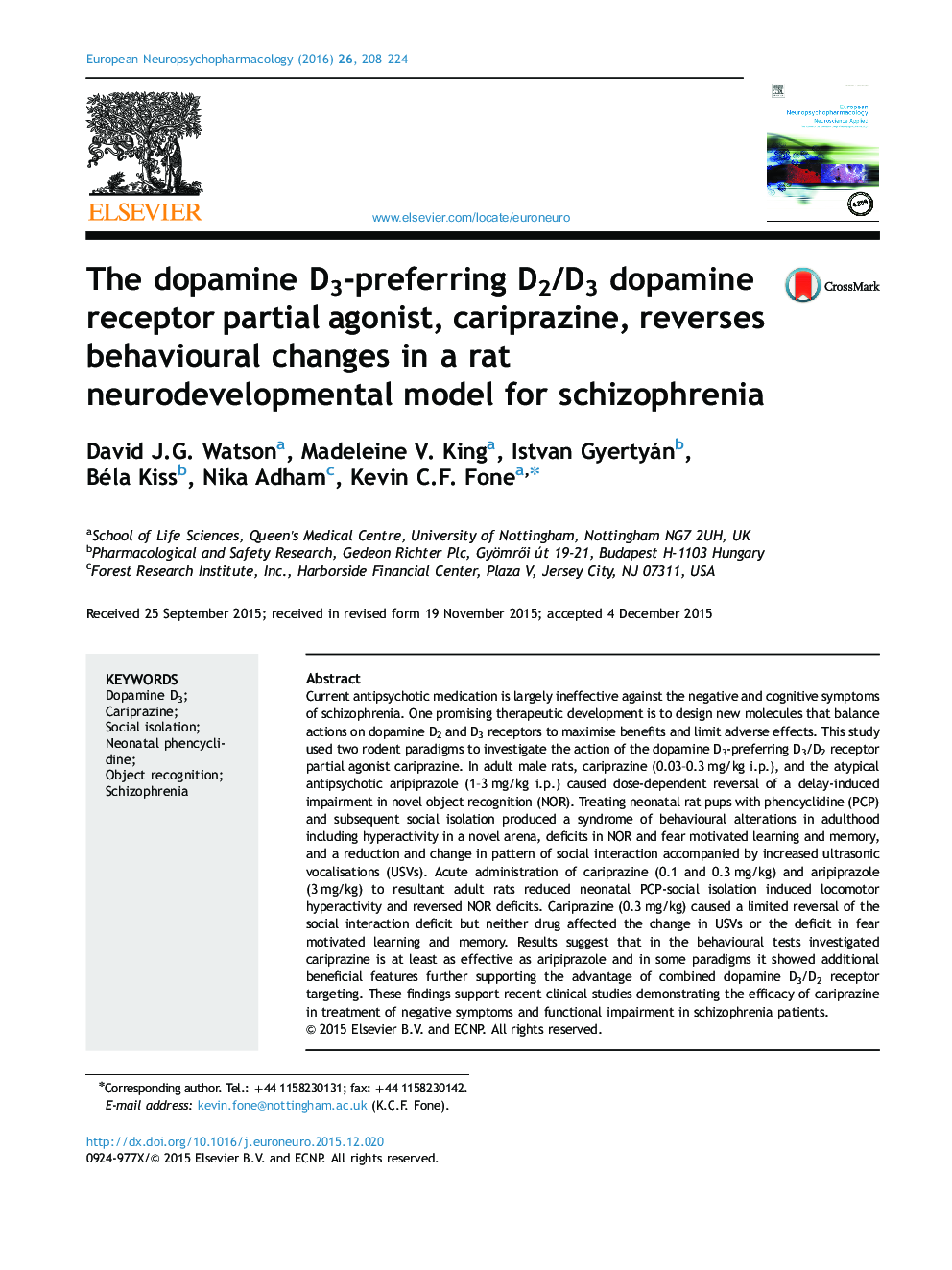| Article ID | Journal | Published Year | Pages | File Type |
|---|---|---|---|---|
| 318747 | European Neuropsychopharmacology | 2016 | 17 Pages |
•Improved medication for schizophrenia may be achieved by drugs like cariprazine with balance actions at dopamine D2 and D3 receptors.•Neonatal phencyclidine administration with social isolation rearing of rats induced a behavioural syndrome resembling positive, negative and cognitive deficits of schizophrenia which was used herein.•Cariprazine attenuated hyperactivity, object recognition impairment and some of the social interaction deficit but not the fear motivated learning and memory impairment.•Drugs with combined dopamine D3/D2 receptor affinity may have improved efficacy against cognitive and negative symptoms of schizophrenia.
Current antipsychotic medication is largely ineffective against the negative and cognitive symptoms of schizophrenia. One promising therapeutic development is to design new molecules that balance actions on dopamine D2 and D3 receptors to maximise benefits and limit adverse effects. This study used two rodent paradigms to investigate the action of the dopamine D3-preferring D3/D2 receptor partial agonist cariprazine. In adult male rats, cariprazine (0.03–0.3 mg/kg i.p.), and the atypical antipsychotic aripiprazole (1–3 mg/kg i.p.) caused dose-dependent reversal of a delay-induced impairment in novel object recognition (NOR). Treating neonatal rat pups with phencyclidine (PCP) and subsequent social isolation produced a syndrome of behavioural alterations in adulthood including hyperactivity in a novel arena, deficits in NOR and fear motivated learning and memory, and a reduction and change in pattern of social interaction accompanied by increased ultrasonic vocalisations (USVs). Acute administration of cariprazine (0.1 and 0.3 mg/kg) and aripiprazole (3 mg/kg) to resultant adult rats reduced neonatal PCP-social isolation induced locomotor hyperactivity and reversed NOR deficits. Cariprazine (0.3 mg/kg) caused a limited reversal of the social interaction deficit but neither drug affected the change in USVs or the deficit in fear motivated learning and memory. Results suggest that in the behavioural tests investigated cariprazine is at least as effective as aripiprazole and in some paradigms it showed additional beneficial features further supporting the advantage of combined dopamine D3/D2 receptor targeting. These findings support recent clinical studies demonstrating the efficacy of cariprazine in treatment of negative symptoms and functional impairment in schizophrenia patients.
